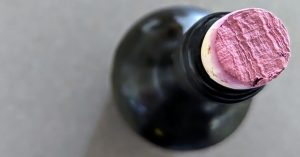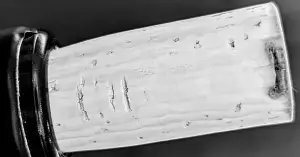Pronunciation: care-ree-NYEHN
Carignan is a red wine grape with its roots tracing back to Spain. It serves both as a blending grape in various wine regions and as a single varietal, showcasing its (very) unique character. This grape variety produces a robust, medium-bodied dry red wine with notes of blackberry, cherry, and a touch of spice. This is a red wine where you want to watch out for quality. Look for “old vine” Carignan if you can.
Here’s what you need to know about Carignan wine.
- What Kind of Wine is Carignan?
- What Is Carignan Similar To?
- Does Carignan Age Well?
- What Does Carignan Smell Like?
- What Does Carignan Taste Like?
- How to Serve Carignan Wine
- Carignan Synonyms
- Carignan Food Pairing Suggestions
- Notable Carignan Producers and Bottles to Try
- Final Thoughts – Carignan as a Must-Try Red Wine Varietal
- Thirsty for More?
What Kind of Wine is Carignan?
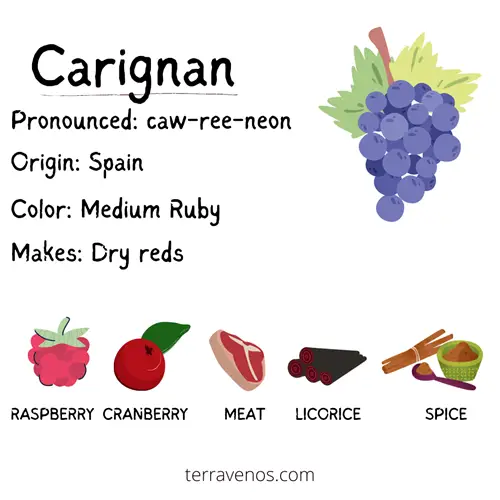
Carignan is a medium to full-bodied red wine with medium acidity, pronounced tannins, and a medium alcohol content. Its style often falls between Grenache and a lighter Syrah.
Where Is Carignan Native To?
Carignan has its origins in Spain in the town of Cariñena, specifically in the regions of Aragon and Catalonia. However, it has spread its vines to various wine regions around the world.
In its homeland, Carignan is a prominent player in blends, contributing to the depth of wines from regions like Priorat and Montsant.
Fun Wine Fact: Despite Carignan’s rich heritage in the town of Cariñena, Carignan vines in the region have slowly been replaced by the much more approachable and overall better winemaking grape, Grenache.
Carignan in Spain
In Spain, Carignan, known as Cariñena or Mazuelo, has deep historical roots. It’s a key grape in the production of traditional Spanish wines like Rioja and Priorat. The grape thrives in the arid climate of Spain, producing wines with bold flavors of raspberry, cranberry, licorice, meatiness, and firm tannins.
Carignan in Languedoc-Roussillon
In the Languedoc-Roussillon region, Carignan has become a cornerstone of many blends, contributing to the region’s rich and flavorful wines. Its ability to withstand warm climates makes it a resilient grape in this southern French region.
Fun Wine Fact: In southern France, Carignan is high in acid, tannin, color, and bitterness, and isn’t particularly easy to grow, yet was widely planted throughout the region thanks to very high yields that could produce copious amounts of mediocre wine post-WWII to slake a thirsty populace.
Carignan Around the World
Today, you’ll find Carignan in California, Chile, Argentina, Mexico, Uruguay, Cyprus, Turkey, and Croatia. Carignan needs a hot, long growing season to fully mature.
What Is Carignan Similar To?
Red Wine Comparison
| Categories | Carignan | Grenache | Syrah | Merlot |
|---|---|---|---|---|
| Hue and Color | Deep red to purple | Ruby red to garnet | Deep red to purple | Ruby red |
| Sweetness | Dry | Dry to off-dry | Dry | Dry to off-dry |
| Acid | Moderate to high | Moderate | Moderate to high | Moderate |
| Tannin | Moderate to high | Low to moderate | Moderate to high | Low to moderate |
| Alcohol | Moderate | Moderate | Moderate to high | Moderate |
| Body | Medium to full | Medium to full | Full | Medium |
| Intensity | Medium to high | Medium | High | Medium |
| Aromas | Cranberry, raspberry, cherry, spice | Red fruits, black pepper, herbs | Blackberry, plum, black pepper | Red and black fruits, chocolate |
| Classic Regions | Spain, France | Rhône Valley, Spain | Rhône Valley, Australia | Bordeaux, France |
| Average Price | $ | $$ | $$ | $$ |
Carignan shares similarities with Grenache, especially in terms of its red cranberry profile and leans into Syrah with some grippy tannins, licorice, spice, and meat notes. with fruitiness and moderate acidity. Carignan, Syrah, and Grenache all complement each other and are often blended together.
What’s the Difference Between Carignan and Grenache?
Carignan has a more savory profile than Grenache with meat and spice. Carignan’s tannins and color will be higher and darker than Grenache.
What is the Difference Between Merlot and Carignan?
Carignan will seem more tannic and biting than Merlot’s soft, plush profile. Carignan showcases red fruit with cranberry and raspberry, and Merlot has more dark fruit, like plum.
Does Carignan Age Well?
Higher quality Carignan can age well. Fuller-bodied Carignan wines can develop complexity and depth over 5-10 years. Let price be your guide. Don’t expect inexpensive bulk Carignan wines to age. Enjoy when you purchase them.
Personal Note: I’ve had exceptional Carignan wines that have stunned (and stumped) me in blind tastings, so these wines do exist, promise! Let your bottle shop employee help you find them.
What Does Carignan Smell Like?
Carignan exhibits a captivating aroma with notes of dark berries, black cherries, and a hint of earthiness. In warmer climates, it may present a subtle spiciness, reminiscent of black pepper.
Helpful Wine Drinking Tip: Carignan can have a funky meatiness to it when first opened. Let your wine decant (or use an aerator) until it blows off (an hour or so) if you dislike this aromatic quality.
What Does Carignan Taste Like?
Carignan showcases a wide range of flavors, from intense dark fruit notes to a touch of spiciness. In regions with warmer climates, you may encounter hints of black pepper and a robust, full-bodied palate.
Fun Wine Fact: Carignan is often blended with Syrah, Grenache, and Mourvedre to help make it more approachable. These are the “improving” grapes. hehehe….
Is Carignan a Heavy Wine?
Carignan’s weight can vary, but most Carignan wines tend to be medium to full-bodied. Wines with higher alcohol content, above 14% ABV, may present a heavier and more robust profile.
Helpful Wine Buying Tip: Look for wines from regions like Priorat (Spain) and Corbières (France) to experience the unique expressions of Carignan. If you can, get bottles from each to do a side-by-side tasting.
How to Serve Carignan Wine
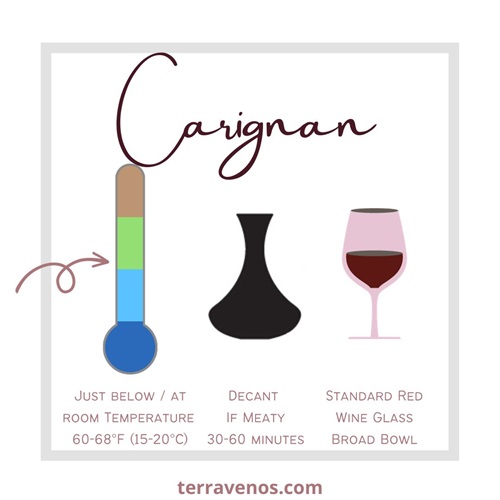
Temperature
Serve Carignan slightly below room temperature, around 60-68°F (15-20°C), to allow the wine’s aromas to unfold without being dominated by higher alcohol scents.
Glassware
Choose a standard red wine glass with a broad bowl, directing the aromas toward your nose for a more immersive tasting experience.
Decanting
Consider decanting fuller-bodied Carignan wines for 30-60 minutes to enhance their flavors. If the wine seems closed, let it sit for 10 minutes and revisit.
Helpful Carignan Drinking Tip: Carignan wines can have a funky meatiness to them when first poured. If you’re not into this, let it sit to open up.
Carignan Wine Aging Potential
Carignan evolves beautifully with age. Lighter styles can improve over 2-5 years, while fuller-bodied and tannic versions can age for 5-10 years, sometimes longer.
Carignan Synonyms
Achéria (Basque Country), Carinyena or Cariñena (Spain), Mazuelo (Spain), Samsó (Catalonia), Carignane (United States), and Carignano (Italy).
Carignan Food Pairing Suggestions
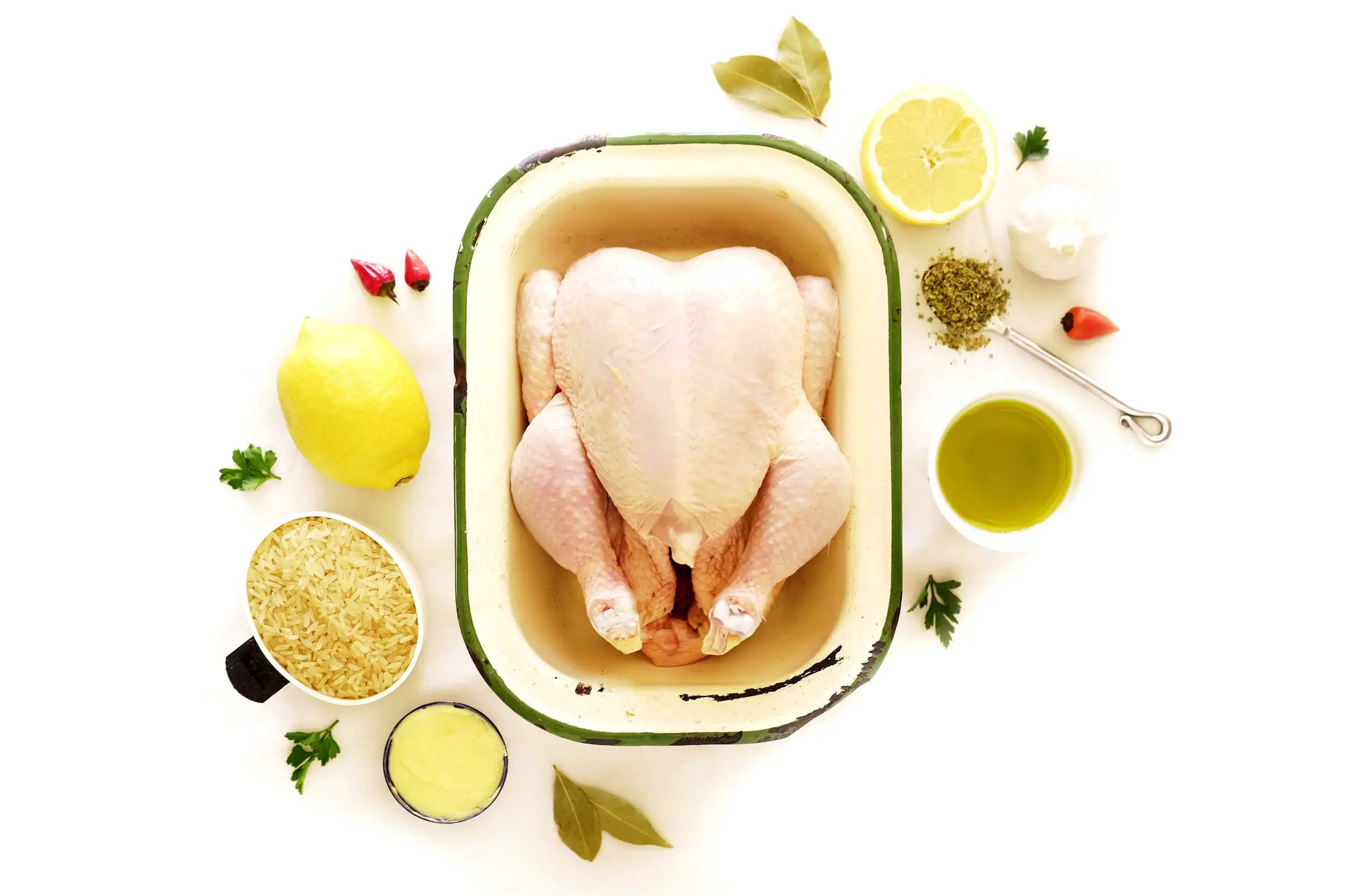
Carignan’s versatility makes it a fantastic companion for a variety of dishes. Pair it with grilled meats, especially lamb, or dishes featuring earthy flavors like mushroom risotto.
Quick Tips: Carignan Wine Food Pairing
Certainly! Here’s a simplified version with only 5 items under each heading:
Meat
- Rotisserie Chicken
- Chicken Drumsticks
- Turkey Burger
- Pork Chops
- Beef Stew
Cheese
- Gouda
- Parmesan
- Cheddar
- Feta
- Manchego
Vegetable
- Roasted Butternut Squash
- Grilled Zucchini
- Tomato Salad
- Grilled Eggplant
- Sauteed Mushrooms
Appetizers
- Chicken Wings
- Cheese and Crackers
- Stuffed Mushrooms
- Bruschetta
- Vegetable Spring Rolls
Psst… Here’s a quick how-to for wine pairing if you’re still figuring things out.
Notable Carignan Producers and Bottles to Try
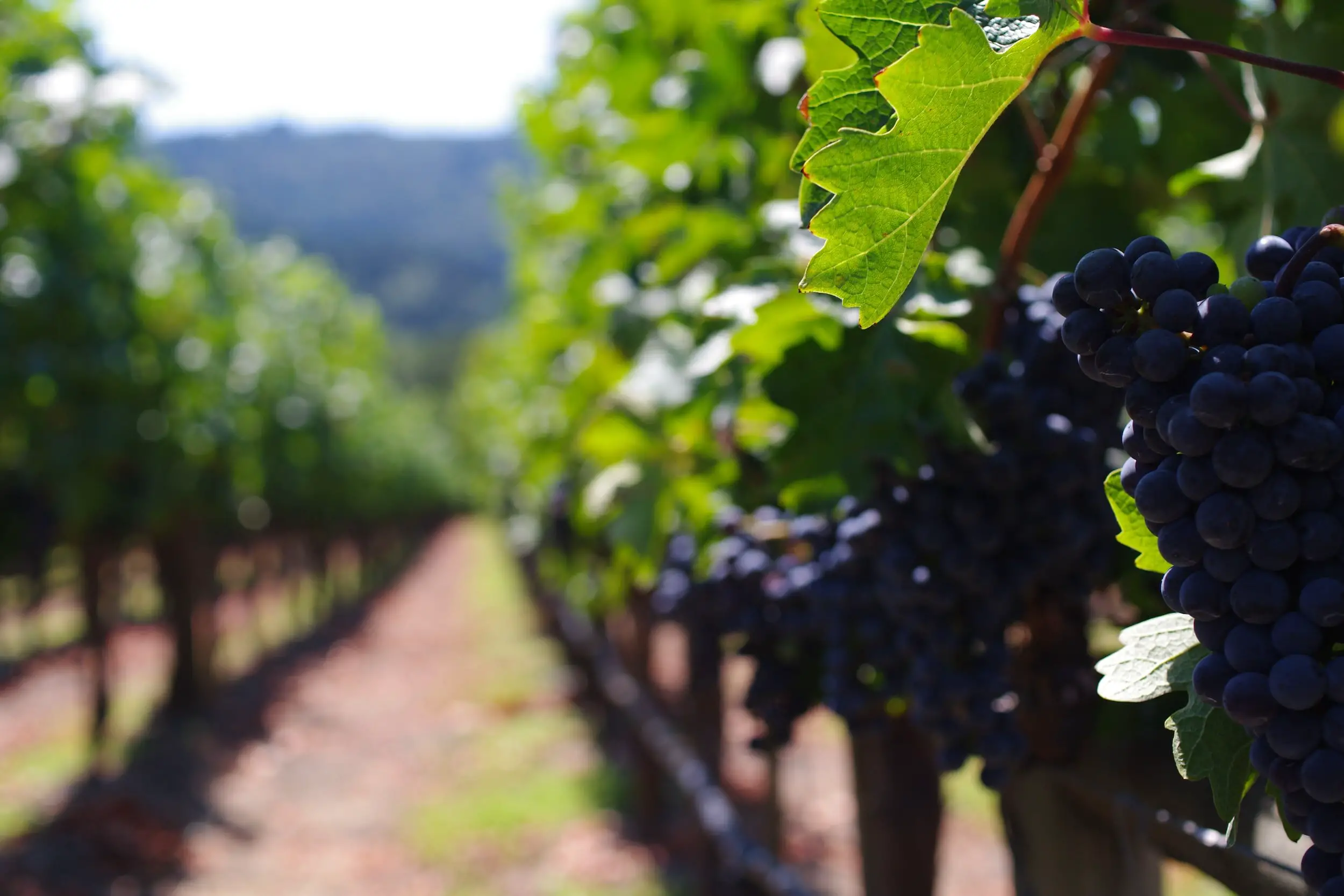
When exploring Carignan, seek out producers dedicated to showcasing the grape’s unique qualities. Notable wineries include:
- Celler de Capçanes (Spain)
- Domaine Gauby (France)
- Ridge Vineyards (United States)
Helpful Carignan Wine Buying Tip: If you really are keen on finding drinkable Carignan, look for old vine Carignan wines.
Winegrowers have figured out that Carignan from old vines naturally restricts yields and produces higher-quality fruit. So, the lesson for today is: If you want amazing Carignan, look for “Old Vine” on the label in whatever language they speak in the country you’re looking to buy your bottle from. Easy!
Final Thoughts – Carignan as a Must-Try Red Wine Varietal
With its bold flavors, robust structure, and aging potential, Carignan is a red wine varietal that demands attention – or at least a passing nod. Here are three key takeaways:
- Distinctive Flavor Profile: Carignan offers intense dark fruit flavors with a touch of spiciness, creating a memorable tasting experience.
- Food-Friendly: Pair Carignan with grilled meats and dishes featuring earthy flavors for a delightful culinary experience.
- Regional Diversity and Aging Potential: Carignan expresses regional diversity, showcasing its versatility across different wine regions. Check out Carignan from Spain and France.
Personal Note: I often comment on whether I keep certain wines in my cellar. I don’t seek out or purchase Carignan as a habit. Will I drink it if it crosses my path? Sure! Is it something I’m stocking up on? No. But you should go explore – Carignan might just be the red wine for you!
Thirsty for More?
Love bold red wines? Here are a few more robust red varietals worth trying.
Check out this list of other strong red wines if you’re looking for inspiration.


